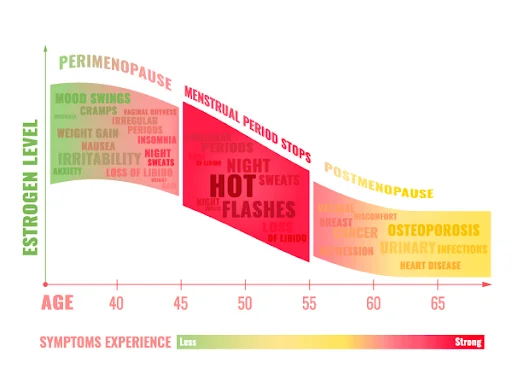Perimenopause typically begins in a woman’s 40s—the 10 years leading up to menopause. Symptoms like mood changes, poor sleep, weight gain, and anxiety are often linked to declining estrogen, progesterone, and testosterone.

Think of your hormones like a symphony—when even one note is off, the whole body feels it. During the menstrual cycle, hormones shift, and testing them at the right time (usually days 19–21) helps identify imbalances.
Cycle stages & testing timing
LOGGING IN IS EASY AS 1 2 3:
Pro Tip: Turn off your pop-up blockers when using our portal for faster loading and full access to features.